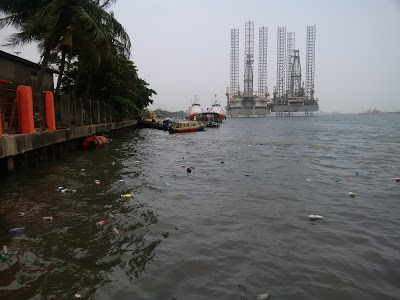pointed out that Nigeria must take urgent steps for such development to sustain the economy as countries that buy the nation’s oil, which is a major revenue earner, had started developing alternative sources of energy.
The participants also noted that it was expedient that manpower development beginning with standard training for cadets, be given adequate attention, as local capacity remains important to the development of the blue economy.
1. That sea time for Nigerian cadets has been both herculean and pathetic;
2. That it is important for seamen to plan on using their experiences to work
ashore after work life at sea, in order to build capacity of younger seafarers;
3. Stakeholders observed the need and importance of empowering the Nigerian
youths for the benefit of a sustainable economy;
4. Stakeholders also noted the importance of developing the blue economy
through adequate manpower development in the maritime industry;
5.That there is a pressing need for meaningful dialogue between the Nigerian
National Petroleum Corporation (NNPC) and ship-owners on the matter of fully
integrating very large crude carriers (VLCC) manned by Nigerians in the
lucrative trade of lifting of the nation’s crude;
6. That if Nigeria could get a lot of the citizenry qualified as competent
seafarers, Nigerians could get to replace the large numbers of foreigners that
currently man the vessels plying Nigeria’s coastal waters;
7. That if Nigeria evolves a pool of competent seafarers, such persons could
also be engaged aboard vessels plying international waters;
8. Participants observed that currently oil constitutes 90 percent of Nigeria’s
income, but that of more concern is that buyers of Nigeria’s oil are making
frantic efforts to develop alternative source of energy;
9. Participants observed that the Federal Government is currently battling with
high level of insecurity which is linked to massive youth unemployment;
10. That competent Nigerian seafarers could thrive both offshore and onshore by
retiring to land-based duties after their times at sea;
11. That river ports development in Nigeria is bedeviled by the same matrix of
problems facing the nation’s maritime industry;
12. That river ports offer huge economic opportunities through engagement in a
gamut of services delivery;
13. That Nigeria’s maritime resources endowments (MREs) offer immense
opportunities for economic fulfillment for the teeming and ever-expanding
population;
14. That the high cost of their training is not commensurate with the lowly
wages paid seafarers, encouraging those so-inclined among them to engage in
sharp practices for economic survival;
15. That Nigerian seafarers contend with unjust criminalisation by Nigerian
government security and regulatory agencies and foreign governments;
16. That the lack of a transparent reporting platform is adversely affecting
the welfare of seafarers; and
17. Participants observed that five years after the ratification of the
Maritime Labour Convention MLC, the Federal Government has yet to commence its
implementation.
That government agencies in the maritime industry and other stakeholders should work out better modalities to enable cadets have quality sea-time experience;
entrepreneurship in the areas of ship chandelling, freight forwarding,
bunkering etc;
tolerance when they go on board training vessels;
implementation of the Maritime Labour Convention (MLC) and also create a unit
that will be in charge of the welfare of the seafarers;
5. Participants recommended that sea-time for Nigerian cadets should be made
easier, given the current herculean and pathetic process towards the exercise,
which has denied many seafarers access to it;
7. That there is need to empower Nigerian youths to access the opportunities
available in the maritime industry as part of efforts to curb increasing crime
rates and also contribute towards a sustainable economic growth;
8. That it is important to develop the blue economy through adequate manpower
development in the maritime industry; and
maritime industry, since buyers of Nigeria’s oil are urgently developing
alternative sources of energy”.

